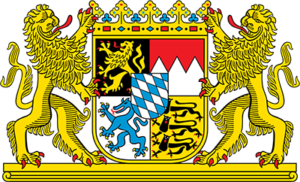From visionary to market leader in viral vectors
SIRION Biotech sets new standards worldwide in the development of vaccines and innovative cell and gene therapies
Dr. Christian Thirion founded SIRION Biotech. The biochemist, who gained his doctorate at the Gene Center in Munich, wanted to set new standards in medicine with an innovative process. Today his vector technology is no longer exotic, but a successful business that has now been taken over by the international group PerkinElmer. SIRION’s contribution is vector design and vector engineering. The focus of current work is the development of vectors for vector-based vaccines and gene carriers for the treatment of diseases with genetic causes. An interview about the beginning at the Munich Innovation and Start-Up Center for Biotechnology (IZB) and the unshakable belief in success.
March 2022
© IZB
Interview with Dr. Christian Thirion, CEO and Dieter Lingelbach, COO.
„After our presence in Paris, Boston and Heidelberg, it was time for the company to continue to grow internationally and to give our company its own image.“
SIRION BIOTECH
Dr. Thirion, the IZB has been your professional home since 2006. Recently you’ve been going different ways. Is the pain of separation great?
The IZB is the birthplace of the company. Fresh out of university, we took our first steps as entrepreneurs with two employees and a little capital. SIRION Biotech is a spin-off from the University of Ulm, Institute for Gene Therapy, and the Gene Center of the Ludwig Maximilian University, Munich. Through organic growth and financial support from private investors and government offices, we were able to hire more and more employees and have thus developed from a typical start-up to a medium-sized company. A bit of nostalgia is naturally there when I think of all the experiences at the IZB: The IZB creates an environment where together you can pursue your big, visionary thoughts.
How do you explain to your 12-year-old son what you are working on?
We work with gene carriers. Many of the diseases today have a genetic basis. This means that our genome accumulates errors either through aging or from birth. The technology that we are developing enables the transfer of genetic information into cells. Using a gene carrier, genetic information or even repairs to the genome can be carried out, which then correct the errors or treat the effects of these errors. Our gene carriers reach their exact destination spot on. If we need to transfer therapeutic information to the liver or to the kidneys, then SIRION develops precisely these tailor-made transfer vehicles.
That sounds like an entrepreneurial precision landing. But you also went through stormy times at the IZB.
Indeed. The IZB has been a time of construction for us. And back then we were way ahead of the times with our research. As the only biotech start-up at the site, we produced virus vectors for preclinical studies. So we had big ideas and a technology with huge potential. But the demand was not there yet. We still had to convince our funders. Naturally, there were many sleepless nights. But times of crisis are part and parcel of a start-up. The IZB is then there to provide a forum for interaction: exchange with investors or political decision-makers. That was important and helpful for us.
With the recent acquisition by PerkinElmer, you are now part of an international life science group.
That’s right, we have fled. After our presence in Paris, Boston and Heidelberg, it was time for the company to continue to grow internationally and to give our company its own image. Working with PerkinElmer is new territory for us. We are currently getting to know the structures and the people. And now we have completely different opportunities. As a result of the takeover, SIRION is represented in more than 100 countries. When a product is marketed, the sales and marketing power allows us to benefit from a numbers effect that we have never known before, which finances even greater research efforts as a result.
But you enjoyed the start-up atmosphere. Do you want to keep this in the future?
Of course. PerkinElmer continues to expect impetus from us, and that is how we see ourselves as a company. Cell and gene therapies are new for almost all companies, and we try to fulfill a vision as close to the market as possible of what will be needed in the future and what a larger group could also develop. We want to use the resources available within the group to develop product lines for novel cell and gene therapy products. We know how to develop gene delivery vehicles. PerkinElmer is strong in devices and analytics. We can use their device platform to better characterize the particles and viral vectors we produce. This is exactly how innovations flow into the group.
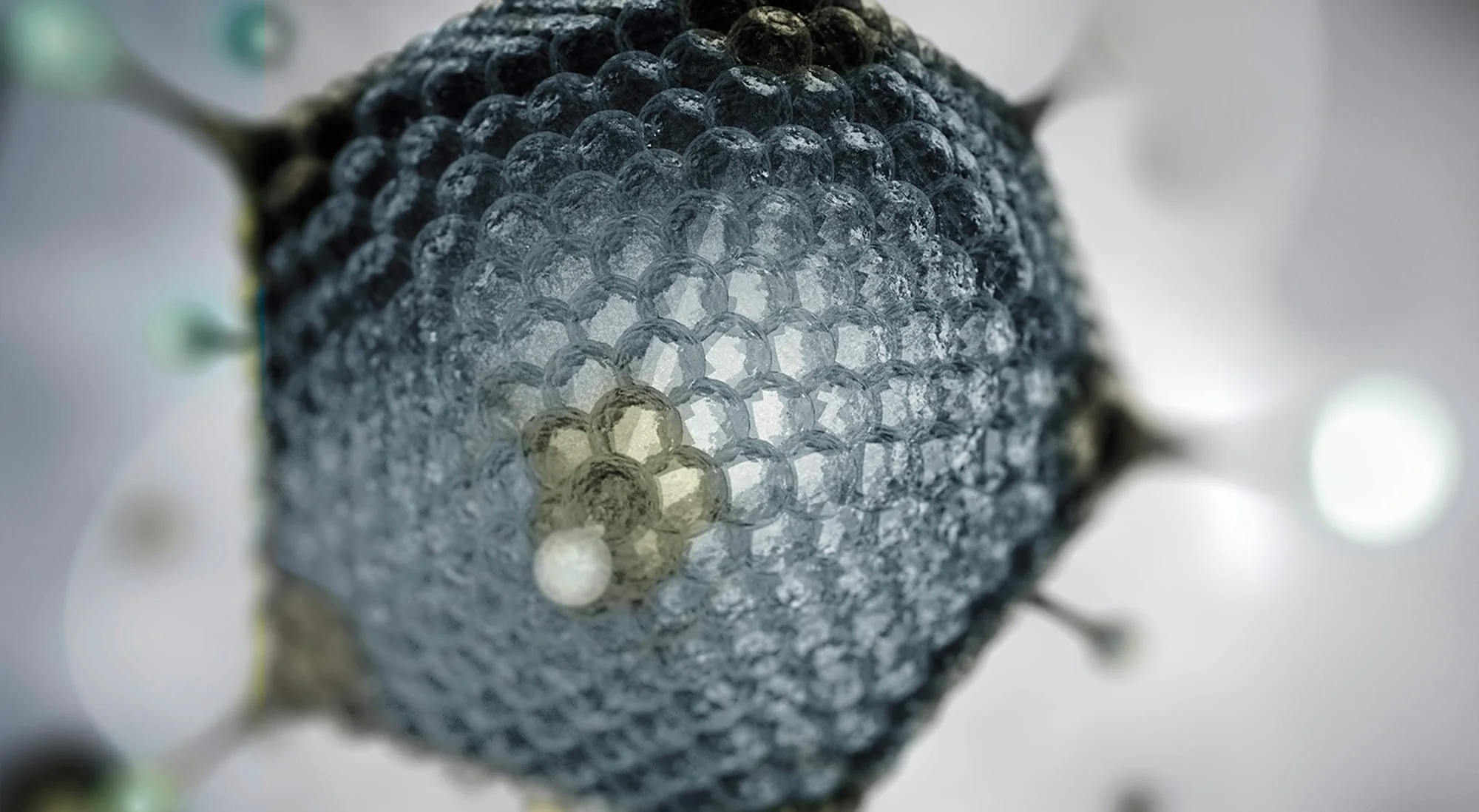
© SIRION BIOTECH
Adenovirus vectors (artistic representation) can be used to elicit a strong, transient expression of a therapeutic transgene in patient cells. SIRION AV technologies serve as new candidate vehicles for immune-oncologic and vaccination strategies.
You been interested in the US market since 2015?
Yes, because investment activities in cell and gene therapy were very large in the USA right from the start. Early on we were taken seriously as a company in the USA. This feedback strengthened us, and we were able to use it to give our shareholders convincing prospects for the future. Today we have over 50 employees in Germany, France and the USA, and plan to set up our own site in the USA. Although there, the number of customers is still manageable, half of our turnover is generated in the USA.
Which founding partners were you able to convince?
At first, we were able to convince the investors Creathor Venture, HTGF, Bayernkapital and KfW. In 2013 we then expanded our group of investors to include two investment companies, one being Aumenta GmbH. We are currently working on 300 individual projects and with well over 300 research partners. Since we had been preparing for an IPO since 2017, we attracted the interest of growth investors. But after negotiations with over 70 interested companies, we decided against the IPO and in favor of PerkinElmer’s offer. In February 2021 we had the first contact, in June 2021 we sold the company – and all this only through video calls in times of the corona pandemic.
Which milestones from your time at the IZB will you remember fondly?
The year 2007, the first time we received money from a customer for our work. Another milestone was the conclusion of a large financing round in 2011. And in 2012 we were invited to a congress about the future in Boston. There we were able to present ourselves alongside Nobel Prize winners and MIT legends such as Professor James J. Collins. Suddenly it was possible to share our vision of gene therapy with ambassadors from the world’s most important venture capital firms. In 2012, gene therapies were still far from being a reality. It was something very exotic.
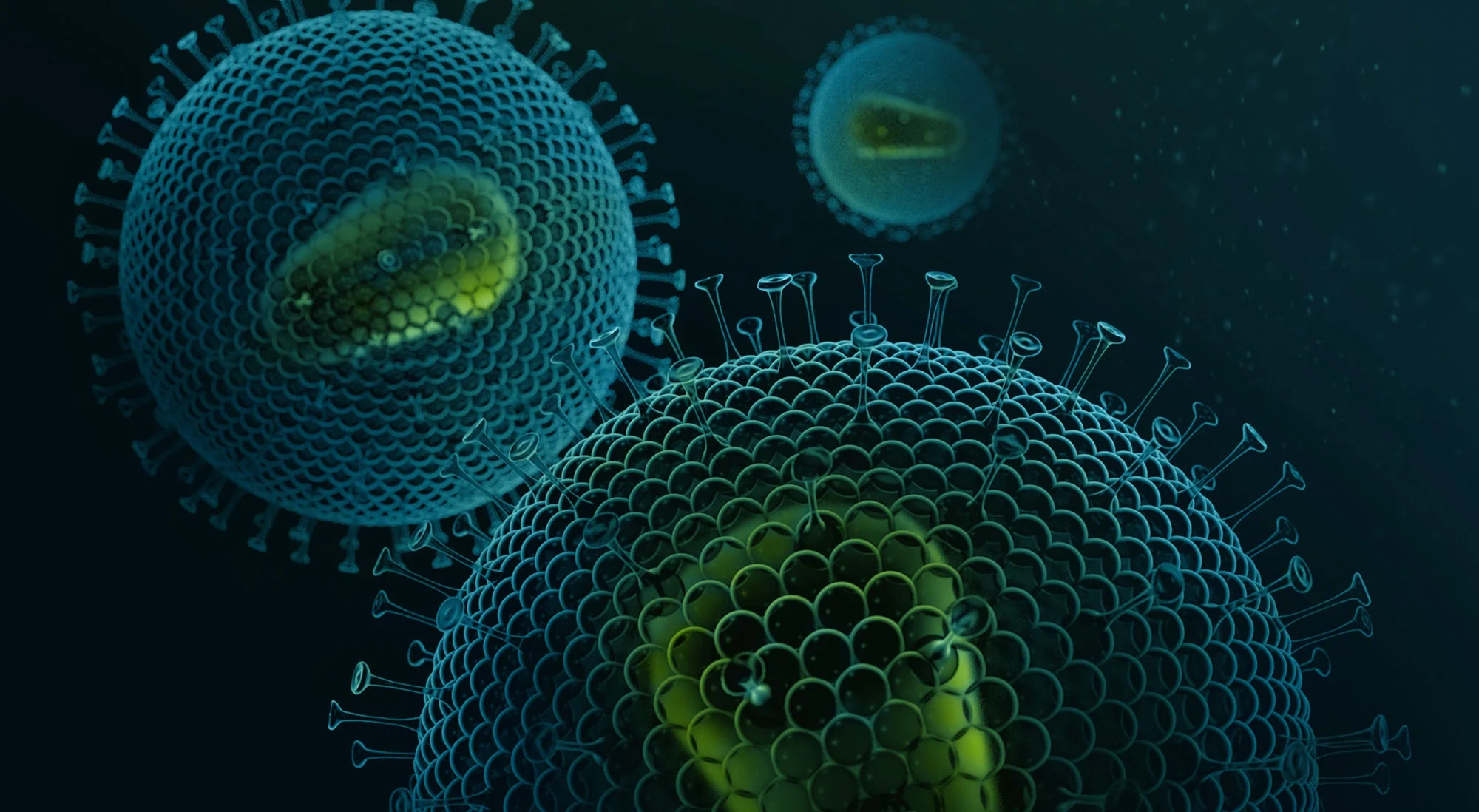
© SIRION BIOTECH
Many cell-based therapies depend on the mode-of-action of Lentiviral vectors (artistic representation). Gaining an optimal transduction strategy is a central focus of SIRION’s LV technologies and key to make new therapies safe and affordable for commercialization.
And when did you have the feeling that SIRION was going to be something really big?
That was in 2015. In one month we were able to secure a technology license and separately a collaboration agreement with a pharmaceutical company for de novo product development, which is extremely rare. Just two months earlier, it seemed as if the company was at the end. That’s how it is in the start-up sector: Happiness and sadness go hand in hand. Today we have five major development collaborations and in total just over 20 license agreements. In an international comparison with similar providers for cell and gene therapy, SIRION is currently among the top 3 in terms of the number of contract agreements.
What motivated you during the difficult times?
We didn’t have to motivate ourselves. For us, it was always just a matter of time before these technologies entered clinical development. And we had this reassurance through interactions with customers, with biotech and pharmaceutical companies. Over the years, the content of our orders has made it increasingly clear that everything is focused on clinical development. And therefore our management and self-image never had any real concern that the underlying technologies or assumptions were wrong.
What distinguishes SIRION from other providers?
We operate in an area that has incredibly fast technology development cycles. Through a large number of international and academic cooperations, SIRION has developed a method to further develop these technologies very rapidly. As a result, we remain international leaders. At the same time, we are down to earth. The material we manufacture is of a leading quality worldwide. We pay attention to many parameters. This allows us to control and improve the quality and efficacy much better. In this way, we ensure that our customers obtain more reliable results in their preclinical research. A special mixture of innovation strategy, further developing the company technologically and at the same time down-to-earth craftsmanship: this combination has led to us being what we are.
What visions do you have? What do you still want to achieve over the next few years?
The way we treat diseases in the future will change fundamentally. It is increasingly possible to treat organs selectively and on their own. This means that the technologies we are developing now enable much more precise medicine. Through the development of gene transfer vehicles, which do not only have to be of viral origin, it will ultimately be possible to treat a specific organ or a specific cell type in a very targeted manner and with significantly fewer side-effects. This is a vision of the future that reduces side-effects and treats or even cures the very causes of diseases by correcting and treating the underlying genetic defects. This can save people who no longer have any therapy options. We are currently involved in more than 25 clinical trials using our technology and viral vectors. We expect that some of our collaboration partners will bring their therapies to market approval within the next two years. One of the companies has already had its therapy approved for use in Europe, and market approval is about to be granted in the USA.
And what are your specific goals for 2022?
We want to grow to 65 employees and double turnover. In 2012, what we did was still visionary. But in 2022 there are already hundreds of clinical trials based on viral vectors. A laboratory in the USA is scheduled to go into operation by the end of the year; in the medium term it certainly makes sense to set up a site in Asia as well.
What advice can you give to other start-ups that are just starting out?
It is important to build up a professional Sales & Marketing and Business Development team early on. I advise investors to establish management early on. There is a correlation between the maturity of the company and its value in the market. Before, we used to develop a viral vector for a fraction of the revenue that we project for it today. That’s what happens when one doesn’t understand the market. Of course, the revenue that a biotech company generates depends on how good its innovative technology is, and whether it finds applications in the market and advances the field. However, it is also important for management how to professionally portray the projects to the outside world and how well one negotiates.
Are you doing today what you wanted to achieve in your professional life?
Yes, we do more research at SIRION than I could ever have achieved at the university. And the international partnerships act like a booster for our technology.
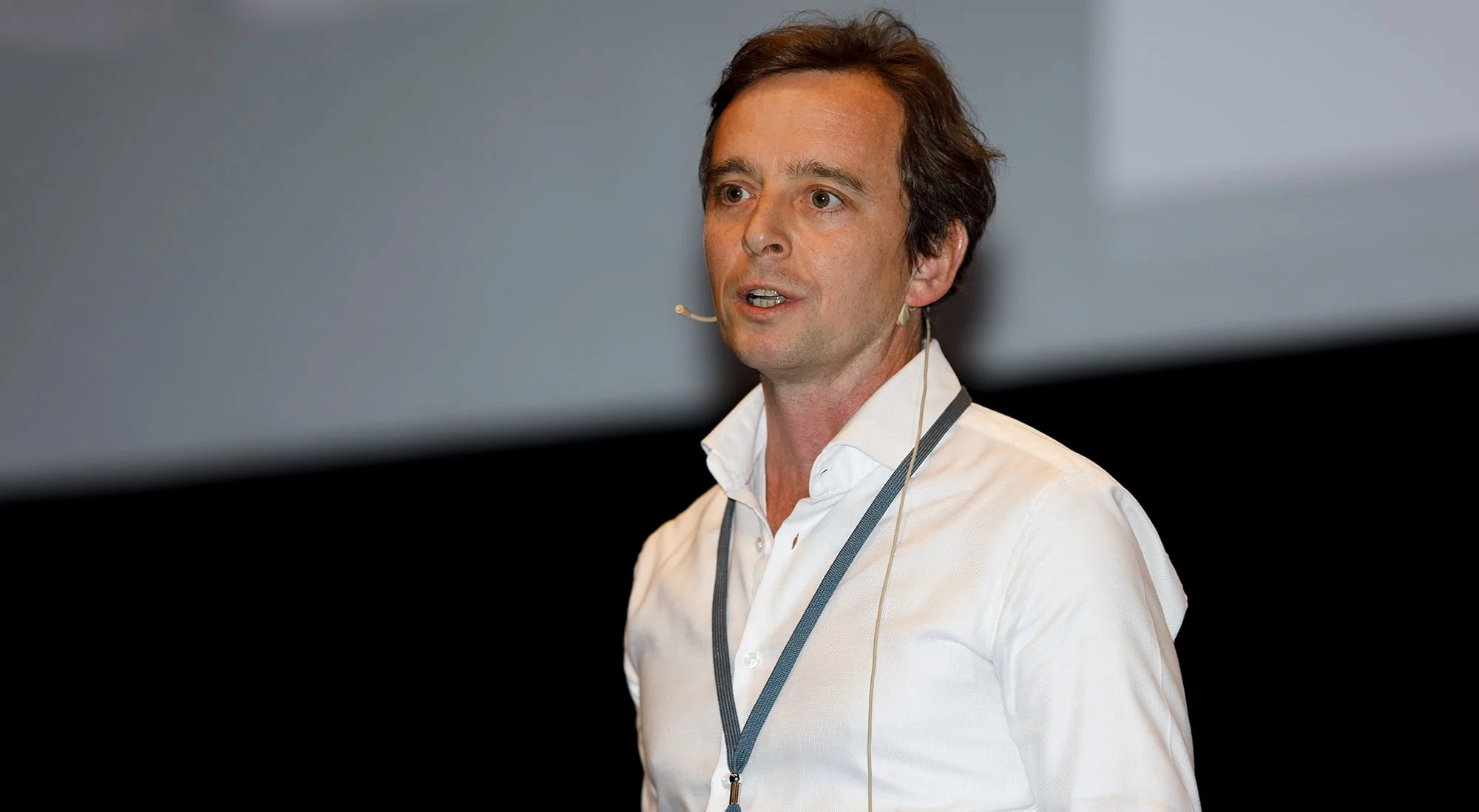
© SIRION BIOTECH
Dr. Christian Thirion, CEO, SIRION Biotech

